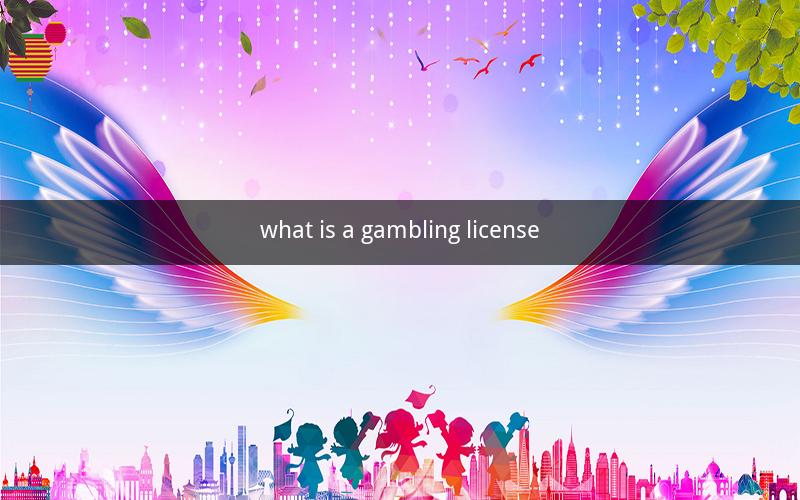
Table of Contents
1. Introduction to Gambling Licenses
2. Importance of Obtaining a Gambling License
3. Types of Gambling Licenses
4. Requirements for Obtaining a Gambling License
5. Application Process for a Gambling License
6. Costs Associated with a Gambling License
7. Validity and Renewal of a Gambling License
8. Legal Implications of Operating Without a Gambling License
9. The Role of Regulatory Bodies in Licensing
10. Case Studies: Successful Gambling License Applications
11. Conclusion
1. Introduction to Gambling Licenses
A gambling license is a legal document that authorizes an entity or individual to conduct gambling activities within a specific jurisdiction. These activities may include online betting, casino games, sports betting, poker, and lottery. The primary purpose of a gambling license is to ensure that gambling operations are conducted in a fair and responsible manner, protecting both the operators and the consumers.
2. Importance of Obtaining a Gambling License
Obtaining a gambling license is crucial for several reasons. Firstly, it demonstrates compliance with local laws and regulations, ensuring that the operator is operating legally. Secondly, it provides a level of trust and credibility to potential customers, as they can be confident that the operator adheres to stringent standards. Lastly, a gambling license may be a requirement for accessing certain payment processing methods and advertising platforms.
3. Types of Gambling Licenses
There are various types of gambling licenses, depending on the jurisdiction and the specific activities being conducted. Some common types include:
- Online Gambling License: Authorizes online betting and casino games.
- Casino License: Allows the operation of physical casinos.
- Sports Betting License: Permits sports betting operations.
- Poker License: Enables the hosting of poker games.
- Lottery License: Allows the operation of lottery games.
4. Requirements for Obtaining a Gambling License
The requirements for obtaining a gambling license vary by jurisdiction, but some common requirements include:
- Business Plan: A detailed plan outlining the business's objectives, target market, and financial projections.
- Management Structure: Information about the company's management team, including their experience and qualifications.
- Financial Statements: Proof of financial stability, such as bank statements or tax returns.
- Security Measures: Information about the company's security protocols to protect customer data and prevent fraud.
- Responsible Gambling Policies: A comprehensive plan to promote responsible gambling and prevent problem gambling.
5. Application Process for a Gambling License
The application process for a gambling license typically involves the following steps:
- Research: Identify the relevant licensing authority and understand the specific requirements.
- Prepare Documentation: Gather all necessary documents and prepare a comprehensive application.
- Submit Application: Submit the application to the licensing authority, along with the required fees.
- Review and Assessment: The licensing authority will review the application and conduct an assessment.
- Decision: The licensing authority will make a decision on the application, which may include conditions or restrictions.
6. Costs Associated with a Gambling License
The costs associated with obtaining a gambling license vary depending on the jurisdiction and the type of license. Some common costs include:
- Application Fees: A fee for submitting the application.
- Licensing Fees: An annual fee for maintaining the license.
- Legal Fees: Fees for legal counsel and assistance with the application process.
- Other Expenses: Costs for obtaining financial statements, security measures, and responsible gambling policies.
7. Validity and Renewal of a Gambling License
Gambling licenses have a set validity period, typically one to five years. To continue operating legally, the operator must renew the license before it expires. The renewal process is similar to the initial application process, requiring the operator to submit updated documentation and fees.
8. Legal Implications of Operating Without a Gambling License
Operating a gambling business without a valid license can lead to severe legal consequences, including fines, imprisonment, and the closure of the business. Additionally, operators may be held liable for any damages resulting from illegal gambling activities.
9. The Role of Regulatory Bodies in Licensing
Regulatory bodies play a crucial role in the licensing process. They are responsible for ensuring that gambling operators adhere to the relevant laws and regulations, promoting fair and responsible gambling, and protecting consumers.
10. Case Studies: Successful Gambling License Applications
Several companies have successfully obtained gambling licenses, demonstrating the importance of thorough preparation and compliance with the necessary requirements. Examples include:
- Company A: Obtained an online gambling license after submitting a detailed business plan and demonstrating strong financial stability.
- Company B: Secured a casino license by meeting stringent security and responsible gambling requirements.
- Company C: Received a sports betting license after proving its ability to provide fair and transparent betting services.
11. Conclusion
Obtaining a gambling license is a crucial step for any operator looking to conduct legal gambling activities. By adhering to the relevant laws and regulations, operators can ensure the integrity of their business and gain the trust of their customers.
Questions and Answers
1. What is the primary purpose of a gambling license?
2. Can a gambling license be obtained without meeting the necessary requirements?
3. What are the benefits of obtaining a gambling license?
4. How long is the validity period of a gambling license?
5. What are the potential legal consequences of operating without a gambling license?
6. Can a gambling license be transferred to another entity?
7. How can a company demonstrate its financial stability during the licensing process?
8. What role does the regulatory body play in the licensing process?
9. Can a gambling license be renewed online?
10. What should be included in a business plan for a gambling license application?